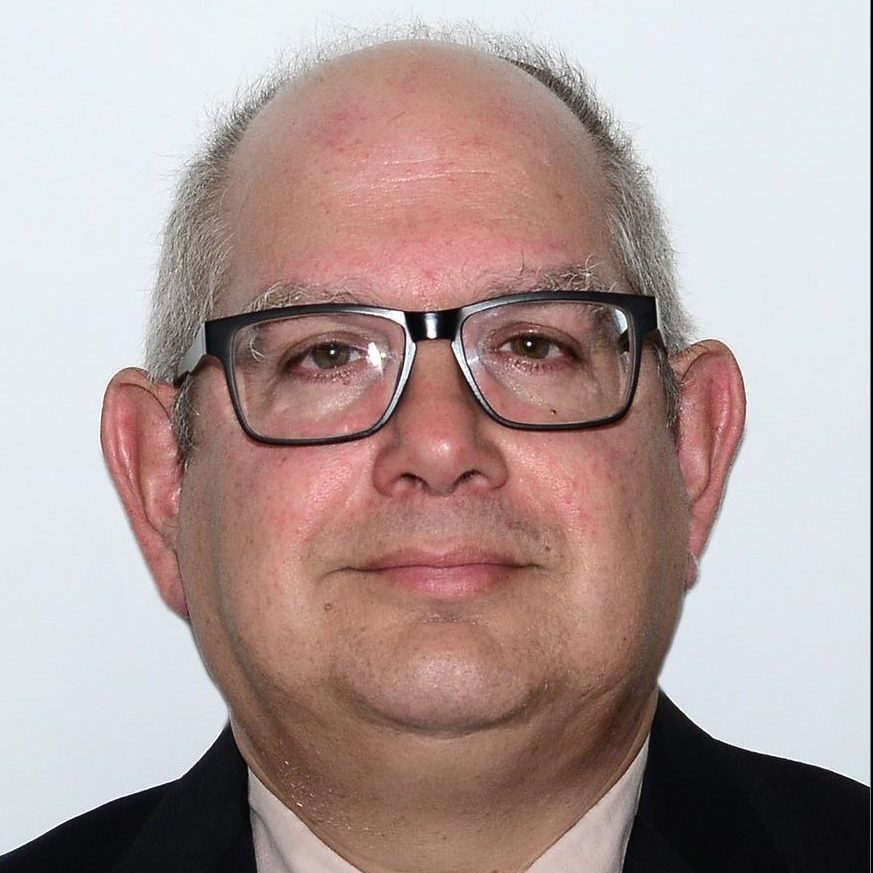Dr. Joshua Krasna: I am sure we would be happy if the Saudis didn’t work toward nuclear weapons. But that is not the same as saying we have a significant impetus to do something about it.

The Times of Israel, 13.08.2020
By RAPHAEL AHREN
It’s obvious why Jerusalem has vowed to do everything in its power to prevent Iran, which continues to threaten the Jewish state with annihilation, from obtaining nuclear weapons. But what if Saudi Arabia — the archenemy of Israel’s archenemy — were also interested in developing a nuclear weapons program?
This is not an entirely hypothetical question. Riyadh is reportedly taking steps to advance its nuclear program in ways experts worry could indicate the future pursuit of uranium enrichment capability — in other words, the kingdom may be inching toward an atomic bomb.
As the saying goes, the enemy of my enemy is my friend. But in the Middle East’s complicated system of strategic alliances, Riyadh’s possible quest for a military nuclear program poses a formidable dilemma for Jerusalem.
On the one hand, Israel no longer considers Saudi Arabia an enemy, but rather a partner in the fight against Shiite Iran and its proxies in Yemen, Lebanon, Syria and Gaza. A nuclear-armed Sunni-Arab power could go a significant way toward deterring Iran from further regional aggression.
Moreover, Jerusalem seeks to establish diplomatic ties with Riyadh, which it hopes could convince the Palestinians to make the necessary concessions to reach a peace agreement.
On the other hand, Israel, which is believed to have a nuclear arsenal, has always actively opposed effort by other states in the region to acquire non-conventional weaponry. The Middle East is a volatile place, and the last thing Jerusalem wants is a nuclear arms race that could dramatically tip the balance of power and jeopardize its current military advantage over its neighbors.
“The Israeli policy is clear and consistent: No country in the Middle East should have military nuclear capability,” former Israeli national security adviser Yaakov Amidror told The Times of Israel this week.
“However, as we anticipated, when the bad agreement was signed with Iran, it pushed other countries in the region to acquire these capabilities, and the Middle East is becoming a more dangerous area,” said Amidror, now a Fellow at the Jewish Institute for National Security of America’s Center for Defense and Strategy and JISS.
At this particular juncture, it can be safely assumed that a Saudi bomb would not be directed at Israel, but rather serve as a deterrent against Iran. But in the ever-turbulent Middle East, Israel had better be prepared for any eventuality, suggested Dore Gold, a former director-general of Israel’s Foreign Ministry.
“Nuclear weapons capability is also a function of intentions,” he said. “Right now we have a Saudi leadership that probably shares certain strategic observations about the region with us. Is it always going to be like that? I don’t know. But it’s something we have to watch and think about.”
Alarming ambitions?
All indications are that Saudi Arabia, which has been working on a civilian nuclear program for many years, has not yet decided if it wants to strike a path towards nuclear weapons capability. And even if it did, it would take several years before it would be able to produce an atomic bomb.
But both the Wall Street Journal and the New York Times last week cited US intelligence officials worried about Riyadh possibly heading in that direction. Aided by China, the reports said, the kingdom constructed a facility to extract uranium yellowcake from uranium ore, which can be enriched into fuel for a nuclear weapon.
The Saudis began working on various nuclear energy projects more than a decade ago; one of them aims to construct 16 nuclear reactors by 2040, another trains technicians for uranium mining and extractions. Saudi Arabia has acknowledged having extracted small amounts of uranium from ores, with the assistance of China and Jordan, which has led international researchers and intelligence officers to look for possible facilities suitable for processing uranium ores and the production of uranium ore concentrate, yellowcake.
“Saudi Arabia has an ambitious nuclear program, which includes building an independent front-end nuclear fuel cycle, including possibly uranium enrichment capability,” said Olli Heinonen, an expert on nuclear weapons programs at the Washington, DC-based Stimson Center.
“Uranium enrichment capability will make Saudi Arabia, like Iran, a nuclear weapon threshold state, which can — if it so decides — break out from its nuclear nonproliferation commitments and build nuclear weapons in a short period of time, perhaps in a few months.”
Thus, statements made by Saudi leaders to the effect that they want whatever Iran has are “alarming,” he added.
Riyadh has not hidden its intention to become a nuclear power if Iran sets the precedent.
“Saudi Arabia does not want to acquire any nuclear bomb, but without a doubt if Iran developed a nuclear bomb, we will follow suit as soon as possible,” Saudi Crown Prince Mohammed bin Salman, the country’s de-facto leader, said in a March 2018 interview.
Right now we have a Saudi leadership that probably shares certain strategic observations about the region with us. Is it always going to be like that? I don’t know. But it’s something we have to watch and think about
Heinonen, who worked for nearly 30 years at the International Atomic Energy Agency, including as head of its Department of Safeguards, has long warned about Iran’s nuclear ambitions and is critical of Tehran’s failure to come clean about its covert military program.
“Saudi Arabia,” he said this week, “proceeds with ambitious independent nuclear fuel cycle plans, which provide a basis for development of nuclear weapons. The program establishes necessary infrastructure to produce fissile material, and provides well-trained technicians and scientists for such work.”
Riyadh’s security concerns are currently focused on Iran, but introducing sensitive nuclear technologies — such as uranium enrichment — to the Middle East will have long-term destabilizing effects, he warned.
Countries cooperating with Saudi Arabia’s nuclear project — mainly China but also Russia, South Korea, Argentina and the US — should promise the kingdom that it will be provided with fuel for civilian reactors that is produced elsewhere and urge it to forgo uranium enrichment on its own territory, Heinonen suggested.
What’s Israel’s role in all of this?
A Saudi Arabia armed with non-conventional weapons has been a “low-level concern of Israel for 30 years, if not longer,” said Joshua Krasna, an expert on the Arab world at JISS, the Jerusalem Institute for Strategy and Security. Fears of an “Islamic bomb” predate even Pakistan’s nuclear weapons program, which was heavily funded by Riyadh, he said.
In past decades, Jerusalem was never shy about voicing its opposition to its Arab neighbors’ nuclear ambitions. But the situation with Saudi Arabia today is different and very tricky for Israel, Krasna went on. Jerusalem views the kingdom as a strategic partner, not only in combating mutual foe Iran and its proxies, but and in other areas as well. Furthermore, Saudi Arabia has become an ever-closer partner of Israel’s closest ally — the United States.
“When a country is perceived as friendly by Israel’s current government, there is very little you can do,” he said. “I am sure we would be happy if the Saudis didn’t work toward nuclear weapons. But that is not the same as saying we have a significant impetus to do something about it.”
“Working against the nukes of ostensible friends is a hard sell. You don’t want to annoy your friends,” he said.
Embarking on a loud diplomatic campaign against the Saudi plan would risk the still-covert rapprochement between Riyadh and Jerusalem, and also wouldn’t be very effective, Krasna posited.
“In the past, Israel protested big US arm sales to the Saudis, to Egypt and to the UAE,” he recalled. “That has disappeared. Israel no longer lobbies against arms sales to Arab countries friendly to the US because it realized that it’s the kind of fight that you waste a lot of resources on but that ultimately isn’t successful.”
Officials in Jerusalem have been instructed not to talk to the press about the Saudis’ nuclear plans, but are obviously following the developments in Saudi Arabia very closely and with some degree of concern.
People with knowledge of the matter estimate that Riyadh has recently intensified nuclear cooperation with Beijing because China has lower nonproliferation standards than the US or other Western countries, but that the Saudis ultimately prefer to work together with Washington on this matter.
After all, Saudi Arabia is aware that China and Russia are closely aligned with Iran, which could become a problem if Riyadh ever decided to militarize its nuclear program.
Is Israel blocking a US-Saudi nuclear agreement?
Even though Israel has stayed mum so far, it remains opposed to Arab countries enriching uranium on their territory, according to Ilan Goldenberg, the director of the Middle East Security Program at the Center for a New American Security. This policy makes it more difficult for the US to reach a nuclear agreement with the Saudis that would rule out a future military program, he argued.
“The best way to prevent Saudi Arabia from getting nuclear weapons is through the best civil nuclear program agreement possible that puts meaningful restrictions on the nuclear activities that could be leveraged for a weapons program,” Goldenberg said. “But thus far Israel has strongly opposed any 123 agreement between the US and Saudi that does not entail forgoing all domestic enrichment.”
So-called “123 agreements,” named after section 123 of the Atomic Energy Act passed by Congress in 1954, require nuclear cooperation agreements with foreign governments to meet several nonproliferation criteria.
In the current political climate, asking Saudi Arabia to agree that it will not be allowed to enrich uranium — something that Iran was allowed to do even under the now largely defunct 2015 nuclear deal — is “unrealistic,” according to Goldenberg.
“And the end result of taking such a hard line is that the Saudis will just cut deals with the Chinese that are much less restrictive,” he predicted.
“So what Israel should do is have deep discussions with the US about a 123 agreement for the Saudis, but ultimately support something realistic that is achievable and ensures Saudi Arabia’s program remains civilian in nature.”








 - בניית אתרים
- בניית אתרים